Octopuses have emerged as a flashpoint in culinary ethics, dividing chefs, diners, and animal welfare advocates around the world. These remarkable cephalopods, long a staple in Mediterranean, East Asian, and Pacific Island cuisines, are now at the center of heated debates about what we should and shouldn’t eat. The controversy stems from mounting scientific evidence about octopus intelligence, sentience, and complex behaviors that challenge our traditional views about seafood consumption. As awareness grows about their cognitive abilities, many restaurants are reconsidering their menus, while others defend cultural culinary traditions that have included octopus for centuries.
In cities from Barcelona to San Francisco, protests have erupted outside restaurants serving octopus dishes, while some high-profile chefs have removed these items entirely. This tension has been amplified by viral videos showing octopuses solving puzzles, using tools, and even appearing to play—behaviors once thought exclusive to mammals. The debate touches on fundamental questions about food ethics, cultural heritage, and where we draw the line when it comes to consuming intelligent creatures, making it one of the most complex and emotionally charged issues in today’s culinary landscape.
Exceptional Intelligence: The Science Behind Octopus Cognition
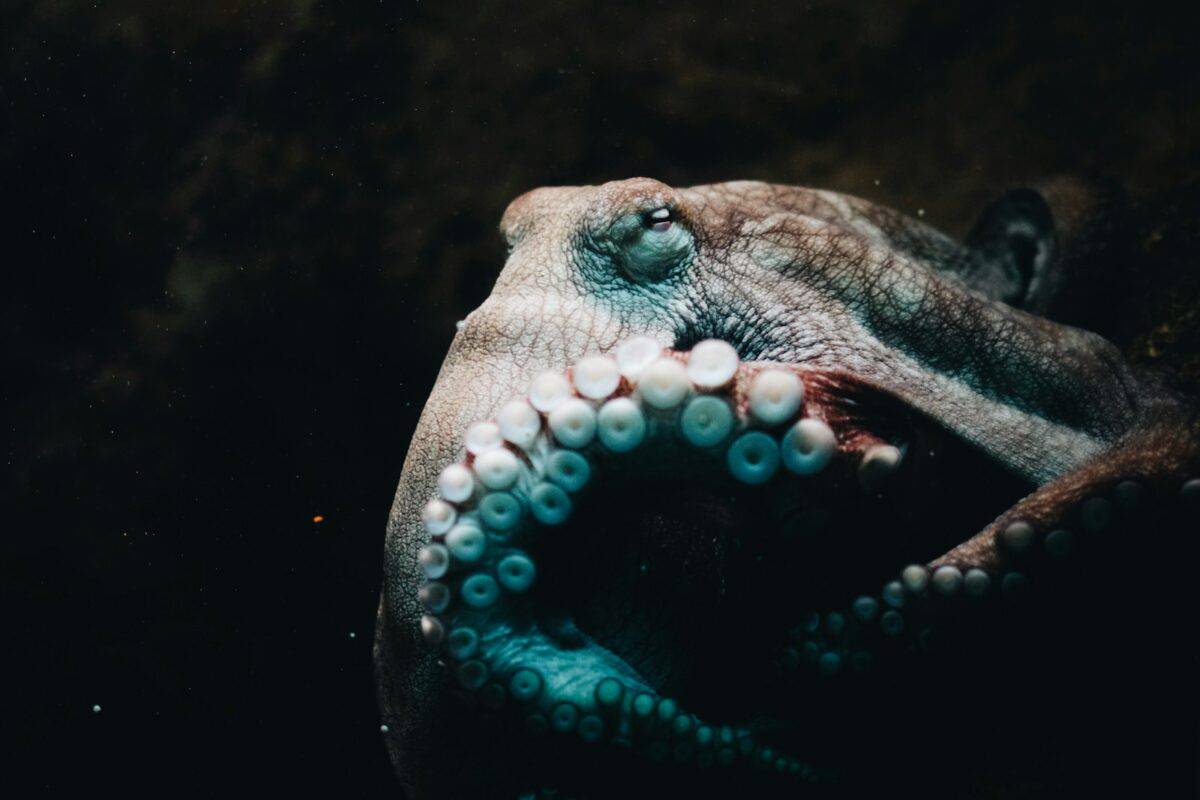
What makes octopuses different from other seafood is their remarkable intelligence, which rivals that of many vertebrates. Scientists have documented octopuses using tools, solving complex puzzles, opening childproof bottles, and even recognizing individual human faces. With approximately 500 million neurons—comparable to the number found in dogs—octopuses possess a distributed intelligence unlike any other animal. Their brain is organized differently from vertebrates, with two-thirds of their neurons located in their eight arms, allowing for a unique form of embodied cognition where each arm can solve problems semi-independently.
Research at marine laboratories worldwide has demonstrated that octopuses can learn through observation, retain memories, and display distinct personalities. In one famous experiment, octopuses could distinguish between different humans even when they wore identical uniforms, treating those who had previously irritated them differently from those who had been kind. This level of cognitive sophistication has led some neuroscientists to suggest that octopuses experience consciousness in ways that may be comparable to mammals, raising profound questions about the ethics of farming and consuming them purely for culinary pleasure.
Cultural Traditions vs. Ethical Concerns

Octopus dishes have deep cultural roots in many coastal societies. In Spain, pulpo a la gallega has been a cornerstone of Galician cuisine for centuries. Japanese chefs have perfected tako preparations from sushi to takoyaki. Greek tavernas serve htapodi as a Mediterranean delicacy. For many communities, these dishes represent not just food but cultural heritage, family traditions, and local economic livelihoods. Defenders of these culinary traditions argue that outsiders imposing new ethical frameworks threaten cultural autonomy and dismiss generations of sustainable fishing practices developed by coastal communities.
On the other side of the debate, animal welfare advocates argue that new scientific knowledge should inform evolving ethical standards. They point out that many cultural practices throughout history have been abandoned as societies developed new moral understandings. This tension creates particular challenges for immigrant communities preserving food traditions in countries where attitudes toward octopus consumption are shifting. The debate often centers on whether cultural traditions should be preserved regardless of new ethical insights, or whether traditions should evolve as our understanding of animal cognition advances.
Farming Controversies: The New Frontier of Octopus Aquaculture

Perhaps no issue has inflamed the octopus debate more than recent efforts to establish commercial octopus farms. In 2019, Spanish company Nueva Pescanova announced plans for the world’s first commercial octopus farm in the Canary Islands, capable of producing 3,000 tons of octopus meat annually. Similar ventures are underway in Japan, Mexico, and China. Proponents argue these farms could reduce pressure on wild octopus populations, which are declining in many regions due to overfishing and climate change. They also cite economic benefits, including job creation and meeting growing global demand without depleting ocean stocks.
Critics, however, highlight substantial welfare concerns unique to octopuses. As solitary, highly intelligent animals that explore complex environments, octopuses fare poorly in captive conditions. Unlike many farmed fish species, octopuses cannot be bred on commercial scales without replicating their complex life cycles, which include dramatic changes in habitat requirements. A landmark 2021 report by the London School of Economics concluded that industrial octopus farming cannot meet basic welfare standards for these sensitive, intelligent animals. This has led to calls for bans on octopus farming before the industry becomes established, with notable success in countries like the UK where commercial octopus farming has been effectively prohibited.
Chefs Taking a Stand: The Restaurant Industry Divide
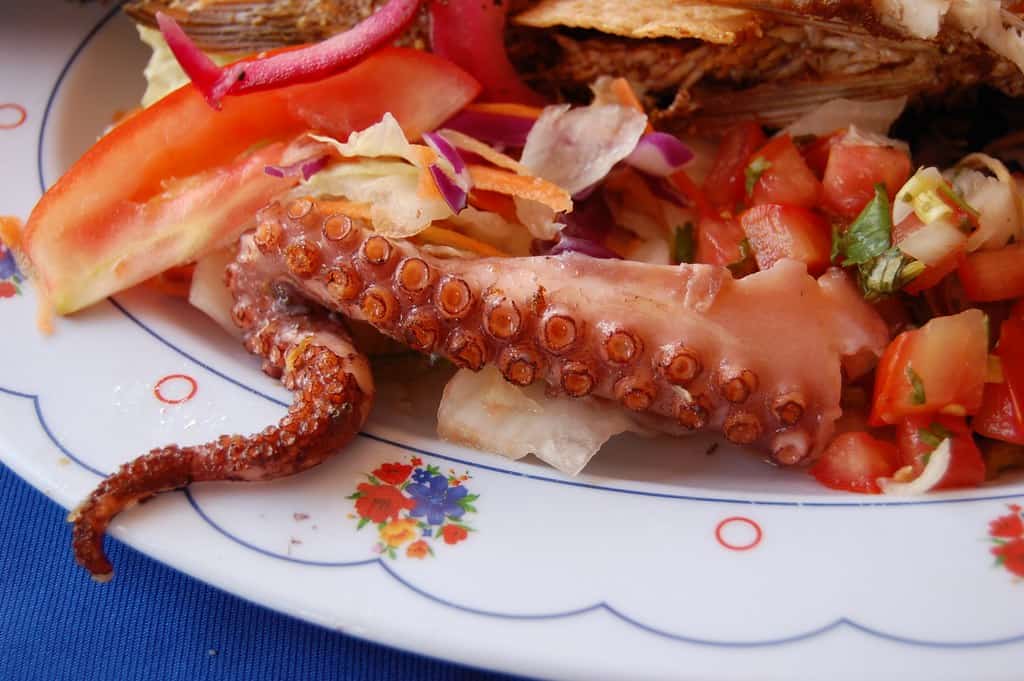
The culinary world has fractured over octopus dishes, with prominent chefs staking out opposing positions. Some renowned chefs like José Andrés continue to serve octopus while emphasizing sustainability and humane sourcing. Others, including Alexis Gauthier of London’s Gauthier Soho, have removed octopus entirely, citing ethical concerns. This division extends beyond individual chefs to entire restaurant groups and culinary organizations. The World’s 50 Best Restaurants organization now faces pressure to consider animal welfare in its influential rankings, with critics pointing out that many top-ranked establishments still prominently feature octopus dishes.
The Michelin Guide, another arbiter of culinary excellence, has been criticized for failing to incorporate ethical standards regarding intelligent marine life into its coveted star system. Meanwhile, more progressive culinary movements have emerged, with organizations like the Culinary Institute of America hosting symposiums on the ethics of serving intelligent creatures. These conversations are changing how culinary schools teach about seafood ethics, with some now including modules specifically addressing the ethical complexities of preparing and serving cephalopods. This industry-wide reconsideration is slowly influencing how diners view octopus dishes on menus worldwide.
Legal Protections: The Emerging Recognition of Cephalopod Rights
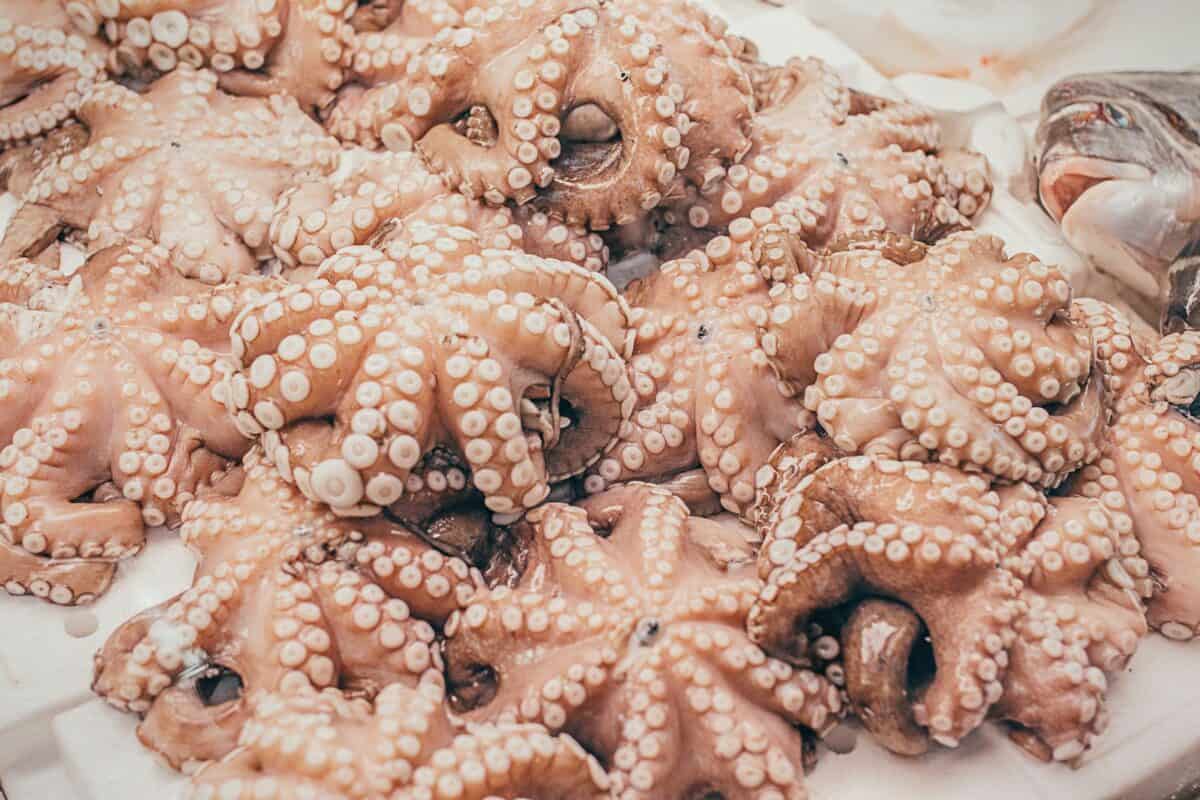
The legal status of octopuses is evolving rapidly as scientific evidence of their intelligence and sentience mounts. In a groundbreaking move, the United Kingdom officially recognized cephalopods (including octopuses, squid, and cuttlefish) as sentient beings under the Animal Welfare (Sentience) Act 2022. This recognition means these animals are legally acknowledged as capable of experiencing feelings such as pain, distress, and comfort. Similar protections have been implemented in several other countries, including Switzerland, Norway, and Australia, where cephalopods now receive many of the same welfare protections as vertebrates in scientific research and commercial facilities.
These legal developments have significant implications for the culinary world. In regions with sentience recognition, restaurants and seafood processors face increasing scrutiny over how octopuses are captured, transported, and slaughtered. Methods like freezing live octopuses or cutting them up while conscious—once common industry practices—are being challenged on legal grounds in these jurisdictions. While few places have banned octopus consumption outright, these legal protections create a framework for future regulations that could severely restrict how octopuses enter the food supply, potentially transforming availability and pricing in restaurants worldwide.
Sustainable Harvesting: Balancing Ecology and Gastronomy
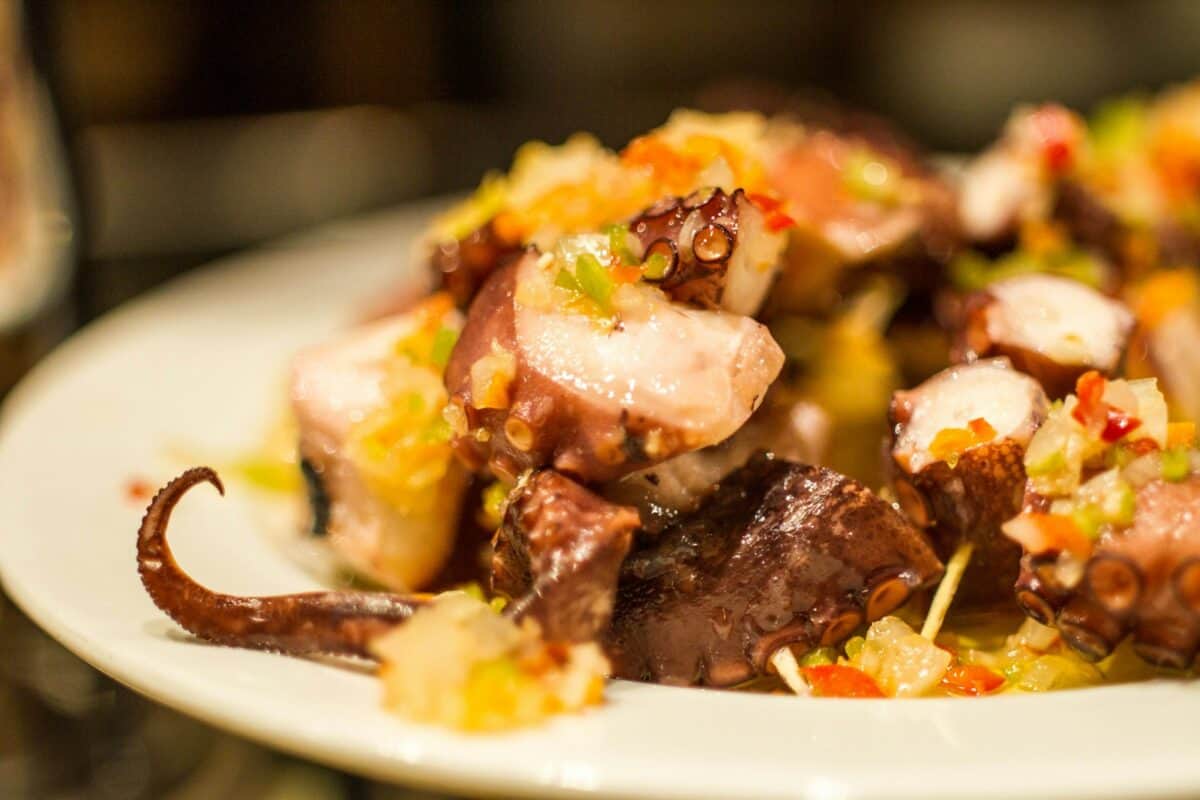
For those who continue to serve and consume octopus, sustainability has become a central concern. Wild octopus populations face multiple threats, including overfishing, ocean acidification, and habitat destruction. Several traditional octopus fisheries, particularly in the Mediterranean and East Asia, have experienced significant declines in recent decades. In response, certification programs like the Marine Stewardship Council have developed standards for sustainable octopus harvesting, focusing on fishing methods that minimize bycatch and habitat damage while maintaining healthy population levels. Some restaurants now exclusively source MSC-certified or equivalent octopus, though these certifications remain controversial among those who question whether any octopus consumption can be truly ethical.
Traditional low-impact fishing methods offer potential middle ground in this debate. In places like the Canary Islands, Greece, and parts of Japan, small-scale fishers have harvested octopuses using clay pots, traps, and hand-lines for generations. These methods allow for selective harvesting of mature animals while avoiding habitat destruction associated with trawling. Some chefs argue that supporting these traditional, small-scale fisheries represents the most ethical approach for those who choose to continue serving octopus. However, these methods cannot meet global demand, creating tension between sustainability, affordability, and availability that restaurants continue to navigate.
Humane Slaughter: The Search for Less Cruel Methods
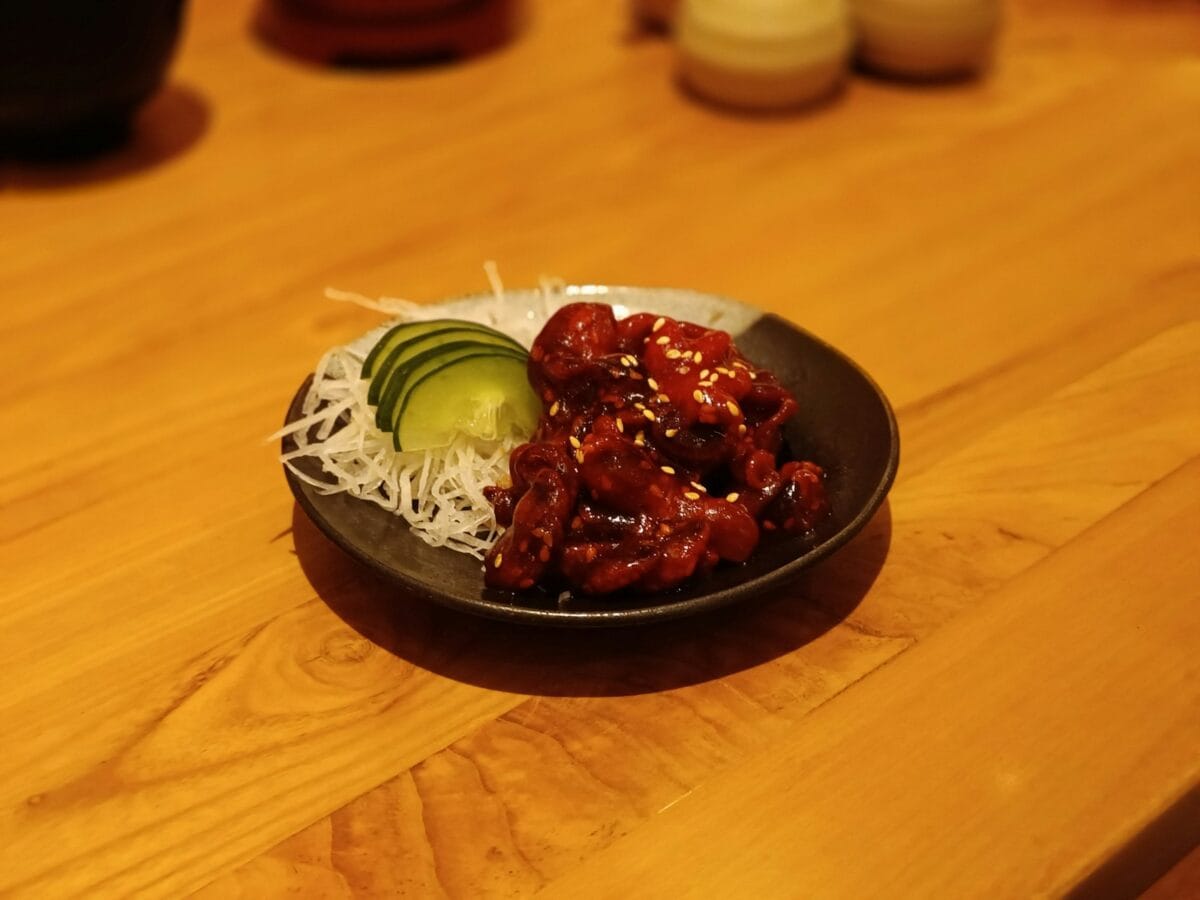
The question of how octopuses meet their end before reaching dinner plates has become increasingly contentious. Traditional methods of killing octopuses—including beating them against rocks, biting between the eyes, or slicing without stunning—are now widely considered inhumane given our understanding of their pain perception. The conventional restaurant practice of cutting and preparing live octopus (as in the Korean dish san-nakji) has faced particular criticism. In response, researchers and industry professionals have sought to develop more humane slaughter methods. The most promising approaches involve two-stage processes: first rendering the animal unconscious through electrical stunning or rapid chilling, followed by brain destruction to ensure death before processing.
Despite these advances, many animal welfare scientists maintain that truly humane slaughter remains elusive for octopuses due to their unique neuroanatomy. With neurons distributed throughout their bodies rather than centralized in a single brain, ensuring an octopus is not experiencing pain during slaughter presents unique challenges not found in vertebrate animals. Some restaurants now advertise their humane slaughter practices as a selling point, though the effectiveness and implementation of these methods vary widely. This aspect of the debate highlights the practical difficulties in reconciling octopus consumption with growing ethical concerns, even for those willing to compromise.
Consumer Awareness: Changing Public Perceptions

Public understanding of octopus intelligence has transformed dramatically in recent years, largely through popular media. Award-winning documentaries like “My Octopus Teacher” on Netflix have introduced millions of viewers to the emotional and cognitive capabilities of these animals. Similarly, viral videos of octopuses escaping from tanks, solving puzzles, and using tools have humanized these creatures for audiences who previously viewed them solely as seafood. This shift in perception has been particularly pronounced among younger generations, with surveys showing that Gen Z and Millennial consumers are significantly more likely than older generations to express ethical concerns about eating octopus.
This growing awareness has translated into changing consumer behavior in many markets. Restaurant owners in North America and Northern Europe report declining orders for octopus dishes, particularly among younger diners. In contrast, demand remains strong in countries with deep cultural connections to octopus cuisine. This generational and cultural divide presents significant challenges for international restaurant chains and food suppliers, who must balance regional preferences with evolving global ethics. Many have responded with menu descriptions that emphasize sustainability and humane practices when offering octopus dishes, recognizing that today’s diners increasingly want to know not just what they’re eating, but how it lived and died.
Culinary Alternatives: Plant-Based and Cell-Cultured Options
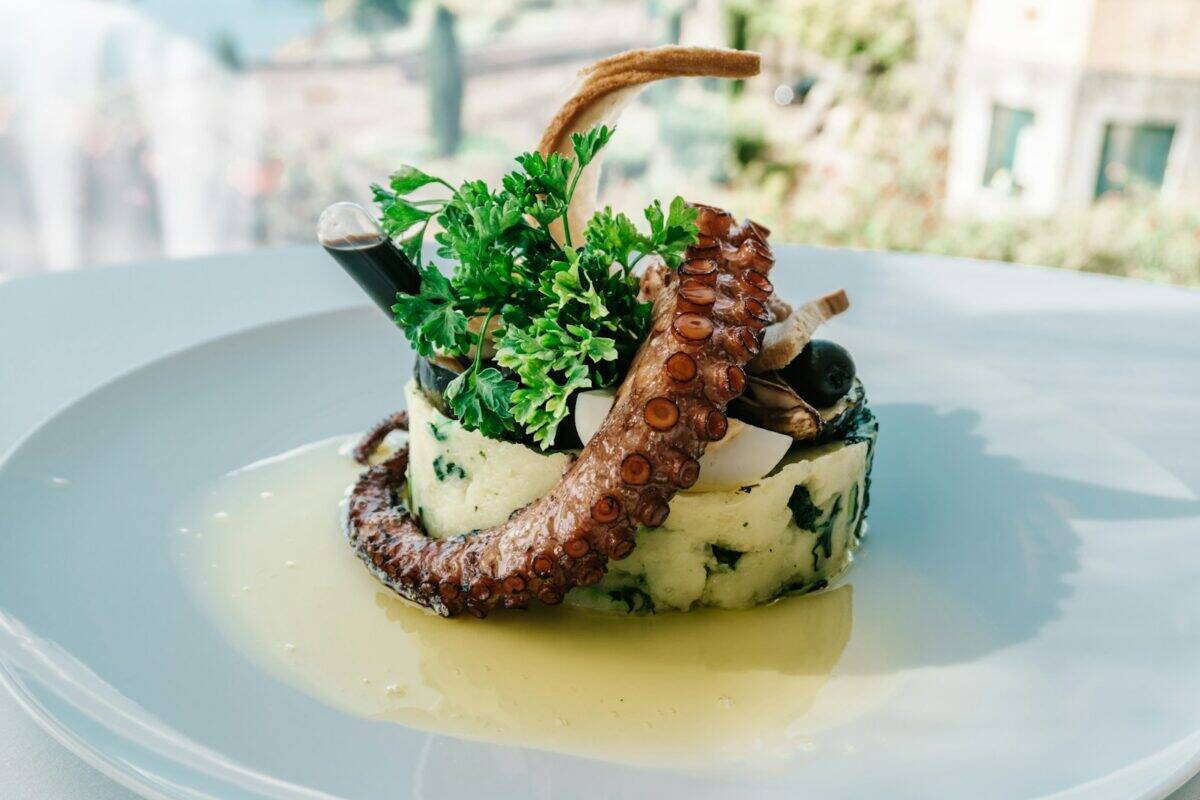
As ethical concerns about octopus consumption grow, innovative chefs and food tech companies are developing alternatives that mimic the taste, texture, and culinary applications of octopus without the ethical complications. Plant-based octopus substitutes using mushrooms, jackfruit, and konjac root have appeared on restaurant menus from London to Los Angeles. These alternatives attempt to recreate the distinctive texture of octopus using various techniques, from carefully scored king oyster mushroom stems to specialized processing of konjac flour. While early attempts received mixed reviews, newer products have won praise from even traditional chefs for their culinary versatility.
More controversially, several biotechnology startups are working on cell-cultured octopus meat, grown from octopus cells in laboratory conditions without raising or killing actual animals. Companies like Aqua Cultured Foods and San Francisco-based Wildtype have attracted significant venture capital for developing cultivated seafood technologies, though commercial production remains years away. These technological approaches to resolving the ethical dilemma have sparked their own debates, with traditionalists arguing that such innovations threaten authentic culinary traditions, while others view them as necessary evolution in a world increasingly concerned with the ethics of food production. For restaurants caught in the crossfire of the octopus debate, these alternatives offer potential compromise solutions that may satisfy ethical concerns while preserving culinary traditions.
Economic Impacts: Communities Dependent on Octopus Fisheries
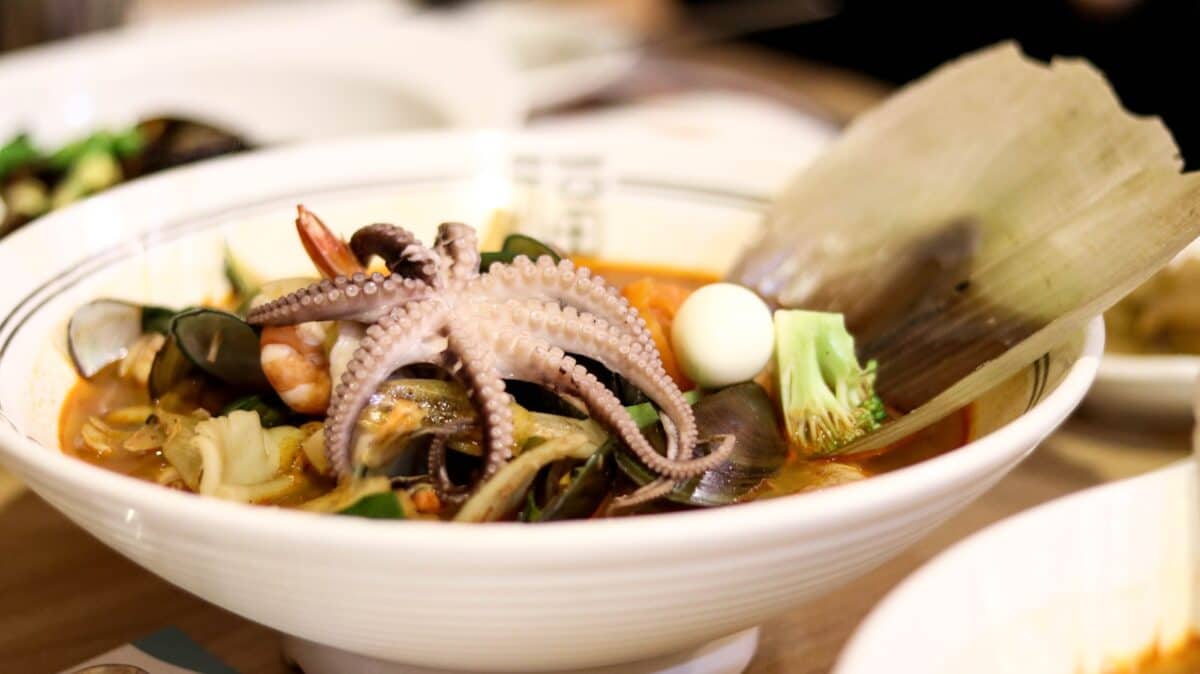
The ethical debate around octopus consumption has real-world economic consequences for coastal communities worldwide. In regions like Galicia, Spain; coastal Morocco; Mauritania; and parts of Japan and Korea, octopus fishing represents a significant source of income and employment. In northwestern Spain alone, the octopus industry supports thousands of jobs through a network of fishers, processors, distributors, and restaurants. Similar dependency exists in coastal villages across the Mediterranean and East Asia, where octopus has been fished for generations. For these communities, campaigns against octopus consumption threaten not just cultural traditions but economic livelihoods.
This economic reality complicates the ethical calculus. Critics of octopus consumption acknowledge these concerns but argue for managed transitions rather than maintaining unsustainable practices. Some advocate for eco-tourism focused on octopus habitats as an alternative income source, pointing to successful models in marine protected areas where visitors pay to observe rather than consume marine life. Others propose government transition programs to help octopus-dependent communities develop alternative livelihoods. These economic dimensions add layers of complexity to what might otherwise seem a straightforward ethical question, illustrating how culinary controversies intersect with questions of global equity, development, and cultural autonomy.
Navigating the Future of Octopus in Global Cuisine
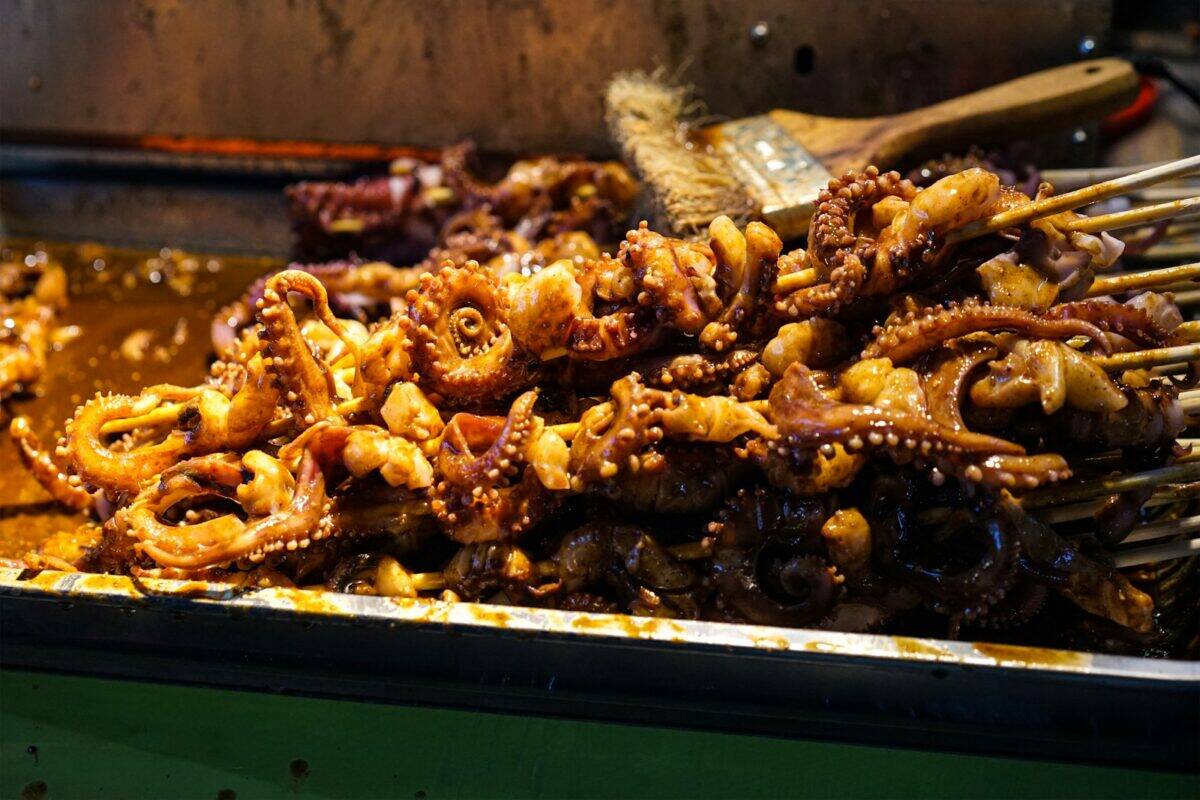
The debate over octopus consumption shows no signs of simple resolution, with deeply entrenched positions on both sides. What seems most likely is an uneven evolution of practices and norms across different regions and cultural contexts. In some parts of the world, particularly in Northern Europe and North America, octopus may gradually disappear from mainstream menus, becoming a specialty item served with extensive ethical justifications or replaced entirely by alternatives. In regions with strong cultural connections to octopus cuisine, consumption will likely continue but with increasing emphasis on sustainability, humane practices, and cultural significance.
This complex ethical terrain offers no easy answers for chefs, diners, or policymakers. The octopus debate ultimately forces us to confront fundamental questions about how we value intelligence across species boundaries, how we balance cultural traditions against evolving ethics, and who gets to decide which animals deserve protection from human consumption. As science continues to reveal more about octopus cognition and consciousness, these questions will only become more pressing. What remains clear is that octopuses are no longer just another seafood option—they have become powerful symbols in a larger conversation about humanity’s relationship with the living beings we choose to eat.
For restaurants navigating these turbulent waters, transparency with customers about sourcing, slaughter methods, and the ethical considerations involved seems the minimum requirement. For consumers, making informed choices means weighing personal values around animal welfare against cultural respect and practical sustainability concerns. The octopus debate may ultimately prove valuable not just for determining the fate of these remarkable animals on our plates, but for helping us develop more nuanced frameworks for thinking about the ethics of consumption in a world of increasingly limited resources and expanding moral circles.
As we continue to learn more about the remarkable abilities of octopuses, from problem-solving to potentially experiencing emotions, our collective decisions about their place in our cuisines will reveal much about our own values, priorities, and capacity for ethical evolution. Whether octopuses remain culinary staples or become creatures we choose to appreciate rather than consume, their complex lives have already transformed how many think about seafood ethics in ways that will influence culinary decisions far beyond these eight-armed invertebrates.
- Dogs as Guardians of the Afterlife in Global Myths - August 8, 2025
- 11 Things About Humans that Cats Can’t Tolerate - August 8, 2025
- This Arctic Creature Has the Warmest Natural Coat in the Animal Kingdom - August 7, 2025

